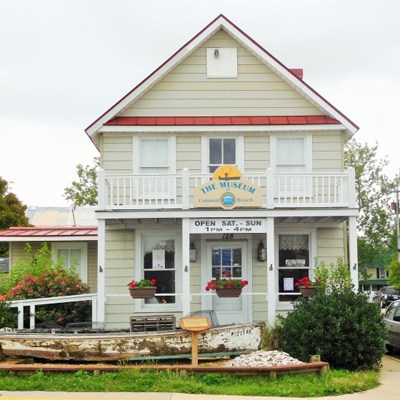Cover photo: Cindy Vaughan
The Town of Colonial Beach, Virginia (CBVA) and the surrounding area have a rich and colorful history. Recovered artifacts document a Native American presence dating to 500 B.C., long before John Smith visited the area during his voyage of discovery in 1608. Nearby are the birthplaces of General Robert E. Lee (Stratford Hall) and Presidents George Washington (George Washington Birthplace National Monument) and James Monroe (The James Monroe Memorial Foundation), whose great-great grandfather settled the town in 1650.
During Colonial times, the region was dotted with plantations and farms settled by such notables as the families of George Washington, James Monroe and Robert E. Lee. Economic activity was primarily related to fishing and farming, which remain important to the local economy. Development of the town began in 1878, when Henry Kintz purchased a 650 acre tract on White Point (now referred to simply as The Point and now the location of the Colonial Beach Yacht Center and Dockside Restaurant & Tiki Bar.) The first survey of the land was recorded in 1882; and by 1883, the Colonial Beach Improvement Company had been established by prominent D.C. businessmen for the purpose of developing the area as a summer resort town for Washingtonians.

Photo: Chris Militzer
By 1906, steamers such as the St. Johns were transporting thousands of visitors from the D.C. area to Colonial Beach, which now had a thriving boardwalk area, hotels and other amenities to accommodate the throng of visitors. The advent of the automobile led to the decline of steamboats and the resort era, as families took to the road to enjoy multiple weekend trips rather than extended summer vacations popular in the early 20th century.
Colonial Beach was the epicenter of the century-long Oyster Wars that lasted from the mid-19th Century to the 1960s. Oysters were as hot a commodity as gold and crucial to the area’s economy, until respected and well-liked local farmer and father of three, Berkley Muse, accused of illegally dredging oysters, was shot and killed by the Maryland Marine Police. This incident effectively ended the Oyster Wars and led to the creation of the Potomac River Fisheries Commission. Once the shock of the deadly oyster battles wore off, oysters experienced a “renaissance†in Virginia, says Rocky Denson, owner and chef of Denson’s Grocery and R&B Oyster Bar.

Photo: Chris Militzer
Legalization of slot machines in Charles County, Maryland, in 1949, and a 1632 land charter led to a decade-long casino era. Businessmen from both sides of the Potomac River seized the opportunity to capitalize on the lucrative venture, erecting wharves from the Virginia side of the river to small casinos built on piers in the Maryland-owned (courtesy of the 1632 charter) Potomac. Offshore, a large gambling barge, Pleasure Island, shuttled guests from the Virginia shore to its floating gaming house full of slot machines. In 1958, under pressure from civic and religious groups, Virginia officials convinced Maryland legislature to amend its slot machine law, disallowing the use of slot machines in establishments unreachable from Maryland soil, and the casino era ended. Riverboat on the Potomac still offers off track betting, Keno, Maryland and Virginia lotteries, as well as food, drink, banquet facilities and special events.
Colonial Beach’s rich cultural history is depicted in beautiful murals on buildings throughout Town, illustrating its bygone era, and evident in the form of the remaining 19th and early 20th century architecture.

Photo: Chris Militzer
The privately-owned Bell House (once home to the father of Alexander Graham Bell) is a fine example of the Stick/Eastlake style built in the mid-1880s. A Virginia Historic Landmark and listed on the National Register of Historic Places, the beautiful Victorian was originally built in 1883 for Colonel J.O.P. Burnside, son of Civil War General Ambrose Burnside, and still stands majestically along Irving Avenue.

Photo: Dennison Street Inn
Dennison Street Inn, the former home of the first mayor of Colonial Beach, has been refurbished in period style and is now a bed and breakfast,

Photo: Chris Militzer
as is Colonial Beach Plaza Bed & Breakfast, housed in a 1900’s Victorian Mansion.Â
The Museum at Colonial Beach, housed in one of the Town’s oldest structures, features permanent and changing exhibits, personal collections, photos and artifacts that tell the stories and preserve the history of our beloved town.
Content provided by Mitzi Saffos, curator, The Museum at Colonial Beach.

